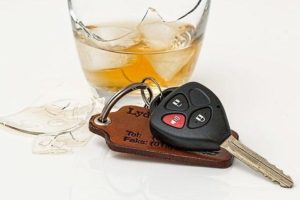When choosing a motorcycle, whether you are a newbie or a veteran biker, it pays to shop around. If you are in the market for a new rather than use motorcycle, you have the knowledge that the motorcycle you choose is fresh to the market. This means you don’t have to worry about damage from crashes or poor maintenance. Of course, the downside is the new motorcycles cost a lot and depreciate quickly. They will usually cost more to insure, as well. Buying a used motorcycle is a little risky, but by investing a bit of time and doing your homework, you can feel confident about making a good choice and coming out ahead financially.
1. Check to make sure the VIN is not re-stamped. Also, compare it to the VIN on the title and make sure they match. You don’t want to take a chance of buying a hot bike.
2. Ask the seller to leave the motorcycle cold. A hot bike can hide all sorts of engine problems, and it’s important to get a feel for how it starts and rides from the start.
3. Check the condition of the bike. If the owner has a notebook with maintenance records or (even better) receipts, that’s reassuring. Look at the bike itself – if it’s showing signs of heavy wear and hasn’t been well-maintained, chances are the owner hasn’t been vigilant about maintenance. On the other hand, if this looks like a show bike, is in pristine condition (even if it has high miles), and has been cared for on the outside, chances are it’s been well-maintained all around. One rule of thumb – if you meet the owner at their house, take a look at the condition of their home. If the owner is fastidious and has a manicured lawn and the house is in great shape, chances are he takes proper maintenance seriously. If the house is in disrepair, the motorcycle probably is, too.
4. Inspect the body work – look for any scratches, dents, and dings. Check the seat for damaged foam and tears, and ensure that the chrome on the bike is free of rust.
5. Check the oil- it should be clean and not leaking. Make sure the engine starts easily and that there is not heavy smoke. It should idle smoothly. Listen to ensure the engine runs smooth. Knocks or rattles mean potential trouble.
6. Check the tires for any signs of dry rot and spin the wheels to make sure they spin smoothly with no wobbles.
For a free legal consultation,
call 1-800-668-6729
7. Some owners may be hesitant to let you test drive their motorcycle. But when you want to buy a used motorcycle, you want to make sure it runs and runs well – and the best way to know for sure is to take her for a ride. Offer to leave you cash and your license with the owner. That’s often what it takes in order for them to feel good about you taking it for a ride.
8. While on your test ride, check how the clutch engages. Is there any slippage? Is the shifter smooth? Do you have enough power, or does the engine seem to be struggling? Do you feel wobbling in the wheels? How are the brakes? These are all common sense reminders, but when you’re seriously interested in a motorcycle, sometimes you overlook the obvious.
Click to contact our personal injury lawyers today
9. Never, ever commit to a deal unless the paperwork is in order. If the seller has a song and dance about where the title is or why his name is different than the name on the title, something’s probably up. You don’t want to hand over your stack of cash unless you’re certain that the bike is yours. Don’t take chances and don’t rush the situation.
10. Don’t forget to insure your bike! This is of utmost importance and is something that must be done right away. And when you insure it, make sure you have ample insurance, not just the bare minimum requirements.
Complete a Free Case Evaluation form now
Ride your used motorcycle into the sunset, and feel proud that you made a great choice! Whether it’s your first motorcycle or you have a whole fleet of them, it’s now all yours. Ride safe – motorcycle crashes are far too common, and the aftermath can be disastrous. Add 1-800-MOTORCYCLE to your cell phone to keep on hand in case of emergencies. Our motorcycle crash attorneys handle cases nationwide, and are available anytime to take your call.
Call or text 1-800-668-6729 or complete a Free Case Evaluation form


